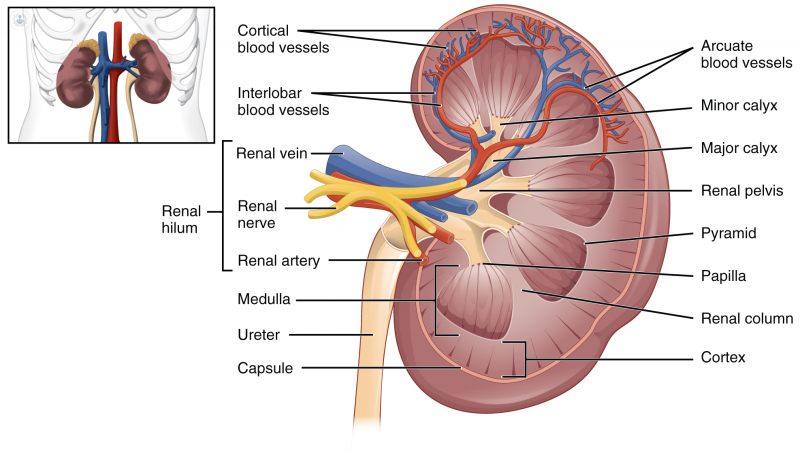

What is a surgery for renal artery stenosis?
Renal artery stenosis is where the arteries which carry blood to your kidneys become narrowed. This can harm the functioning of your kidneys and lead to high blood pressure. Renal artery stenosis can occur due to growth in the muscles of the arteries or atherosclerosis.
Renal artery stenosis surgery is aimed at restoring the flow of blood in the kidneys and avoid deteriorating kidney function. Left untreated, renal artery stenosis can cause a patient to require dialysis or even kidney transplant.

Why is a surgery for renal artery stenosis done?
Renal artery stenosis surgery is not the first line of treatment. In many cases renal artery stenosis can be managed with lifestyle changes, to prevent further build up fatty acids in the arteries, and medication, to help relax the blood vessels.
Surgery is only considered if:
- you have uncontrolled high blood pressure
- your kidney function has already deteriorated significantly or is set to deteriorate further
What does renal artery stenosis surgery involve?
There are three main types of renal artery stenosis surgery:
- renal artery bypass surgery aims to create a new route for the blood to flow through by grafting a blood vessel onto the renal artery
- renal angioplasty involves opening up the renal artery and inserting a stent to widen it and support increased blood flow
- renal endarterectomy involves opening up the renal artery and taking out the inner lining, which contains the plaque that has built up within
There is still debate over which procedure has the best long-term outcomes, and the right procedure will also depend on the risks involved for each patient.
How to prepare for surgery
Before surgery you are likely to have a number of medical examinations, including blood tests, to determine your overall state of health and readiness for surgery.
It will be important for the surgeon and anaesthetist to also take a full medical history, including if you have diabetes, obesity or heart disease. These conditions could increase your risk of medical complications during the intervention, so it is very important to take them into consideration.
Care after surgery
After surgery you are likely to be monitored for a period of time in hospital to check if any complications arise and deal with the promptly if they do. The specialist may schedule a number of follow-up appointments to monitor the blood flow in your kidneys and overall blood pressure. You will be advised on the lifestyle changes required to keep your blood pressure under control and avoid further renal artery stenosis.
